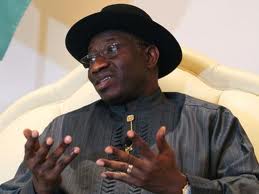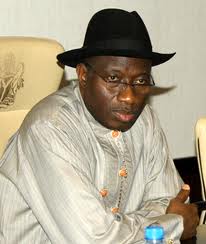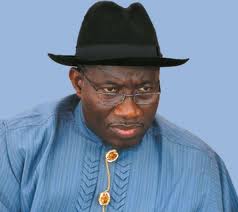NIGERIAN TERTIARY EDUCATION IN PERSPECTIVE: CAN 2013 PROVIDE A GLIMMER OF HOPE?
By Femi Peters
As the year draws to an end and a new one lurks in the corner,Nigerians, have commenced the now perfunctory ritual of assessing and analysing the performance of the government in the outgoing year. While the jury is still out on that count,a cursory glance through the nation’s various media organs may give an inkling into what the verdict will  eventually be. There is a near consensus that government could have done better in various aspects of our national life and development. The economy is not only in free fall -not withstanding what spin doctors and apologists will have us believe- the vast majority of Nigerians have now sunk into poverty. While the managers of the economy celebrate the world bank’s statistical economic growth analysis and projections for Nigeria, the real statistics that counts is that released by National Bureau of Statistics ,an agency of government, placing over 60% of the entire population or more accurately , 112 million Nigerians in the poverty bracket. A double digit Inflationary rate -which is at an all time high -is set to rise once again with the planned inhumane hike in pump price of PMS by the new year.
eventually be. There is a near consensus that government could have done better in various aspects of our national life and development. The economy is not only in free fall -not withstanding what spin doctors and apologists will have us believe- the vast majority of Nigerians have now sunk into poverty. While the managers of the economy celebrate the world bank’s statistical economic growth analysis and projections for Nigeria, the real statistics that counts is that released by National Bureau of Statistics ,an agency of government, placing over 60% of the entire population or more accurately , 112 million Nigerians in the poverty bracket. A double digit Inflationary rate -which is at an all time high -is set to rise once again with the planned inhumane hike in pump price of PMS by the new year.
The state of infrastructure did not fare any better. The road network is virtually collapsed or nonexistent as millions of Nigerians spent the Yuletide in the horrendous traffic stalemate in various highways occasioned by the abysmal conditions of the roads. These same roads which had gulped-at least on paper – billions of appropriation Naira have become the waterloo of tax payers, sending many lives to their unexpected demise and almost led to the death of two serving governors. As you read this, the Benin/Ore express way is near impassable, the Lagos/ Ibadan expressway is now commuters living rooms(most have spent days on that stretch of road),the Onitsha bridge head is at a total standstill to mention just a few.
While the Government makes a mountain out of achieving the generation of 4500MW by all the power stations in the country combined-South Africa is currently generating over 50,000mw and still counting, with half Nigeria’s population-many Nigerians spent the holidays either in darkness or aided by noisome generating sets. The promise of stable power supply has gone the way of other unfulfilled promises but with more than 100% rise in tariffs introduced by the government, effectively charging Nigerians for services not rendered.
The WHO places Nigeria’s maternal/child and adult mortality as some of the lowest in the world. A recent survey lists Nigeria as one of the worst places to be born on earth. What, with a healthcare delivery system that is comatose and where hospitals still being described as mere consulting rooms,some countries of the world are now cashing in on the state of our healthcare system to boost their economies. Nigerians especially the elite now travel in their droves to seek proper medical attention abroad while those who can’t afford this luxury are left to their fate by an insensitive ruling class.
The much touted robust war against corruption is a scramble for whatever you can lay your hands on as everyday now breaks with scandals of mind-boggling sums with the alleged active connivance of agents of the same government that is supposed to fight the menace. Little wonder the Transparency International in her most recent Corruption Perception Index ranked Nigeria as one of the most corrupt countries in the world.
However, in the midst of all these sad stories is a tiny glimmer that there may yet be hope for our country in 2013. This unexpected ray of light is in the education sector, tertiary education to be precise. While most sceptics will want to give lie to this assertion and validly so, given the not so convincing performance of the Jonathan administration in the education sector , this optimism arose from another incident that occurred during the early months of the outgoing year. The ASUU had proceeded on indefinite strike after several warnings to Government to honour and implement the terms of agreement it reached with her in 2007. In breaking the deadlock the GEJ administration decided to take a holistic look at the problems of Tertiary education in Nigeria starting with the Universities.
The Government may have been spurred on to take this action owing to the issues that emerged during the negotiations with ASUU but more disturbing is the obvious fact that Nigerian Universities were merely living on borrowed time afforded them by the interventions of the TETFUND ,a Government interventionist agency set up to help stymie the rot in that sector. The TETFUND which had also undergone a radical surgery in its operational mode in the last five years was essentially the only tool being used by the government to confront the challenges in that sector. Granted that the TETFUND discharged its interventionist duties effectively and efficiently it was quite clear that was not adequate to completely turn the nation’s ivory towers into world class institutions. The dire straights that the Universities were in was further accentuated by the absence of any Nigerian University in the 2011 Webometric Ranking of Universities, which measures web presence and content. This Ranking did not mention a single Nigerian university until after 1,600 other mentions, the QS World University Ranking, which concentrates on programme and instructional content, did not mention a Nigerian University at all.
Realizing the place of Universities in training the management workforce that would propel the nation’s development engine, the administration set up a Committee on Needs Assessment of Nigeria’s Public Universities(CNANU) and appointed then Executive Secretary of TETFUND Prof Mahmood Yakubu as its Chairman. The choice of Prof. Mahmood must have been deliberate given the intimidating achievements of the TETFUND in that sector under his watch. Prior to his assumption of office as Executive Secretary of TETFUND, no Nigerian University was in the list of 100 ranked Universities in Africa for several principal reasons including virtually no resources for research, decay and dearth of infrastructure etc. The TETFUND following the amendment of the old ETF Act ensured that enhanced funding was available for designated intervention projects in all beneficiary institutions within the mandate of the Fund. This stride culminated in 6 Nigerian Universities for the first time breaking into the top 100 ranked Universities in Africa. The high point of the TETFUND ‘s achievement during this period was the provision of funds for research, library development, academic staff training and development, publications of journals, book development, infrastructural development including rehabilitation and renovation, entrepreneurship development,etc in public tertiary institutions within the mandate of TETFUND.
The TETFUND also ensured that the beautiful architectural masterpieces which Nigerian students studying abroad were accustomed to were provided in beneficiary tertiary institutions thereby creating the ambience necessary for conducive teaching, learning and research.
It was to the CNANU that the Government looked up to for guidance on how Nigeria’s Tertiary education system can be transformed and delivered it did. The Committee toured virtually every University in the country and unravelled stunning and embarrassing revelations about the true state of Nigeria’s Universities . These revelations were meticulously penned in the Committee’s report presented to the Federal Executive Council and the National Economic Council .It revealed the extreme decay (including infrastructure) in the Nigerian Universities and made very practical and pragmatic recommendations which if fully implemented and with the necessary will on the part of Government has the potential to transform the nation’s educational system. The Committees approach to the assignment and the ingenuity it brought to bare in delivering its points of reference was so evident and poignant that a delighted President Goodluck Jonathan further directed that similar Need Assessment be carried out for Polytechnics and Colleges of Education in Nigeria.
As 2013 draws near, it is hoped that the Government will muster the necessary will to rein the changes that is needed in the education sector. This report must not be allowed to go the way of previous reports before it. It must not gather dust in the nation’s report overflowing shelves. While we commend Government for setting up the CNANU it must go one step further by releasing a white paper on the report and implementing aspects of the report that are immediately practicable with timelines. The Committee may also be requested to stay on and supervise the effective implementation of its recommendations as done in other climes. It is clear that this may be the only opportunity we may have as a nation to get it right owing to the fortune of having a President who also happened to be from the sector. 2013 may just provide a glimmer of hope for tertiary education in Nigeria .




